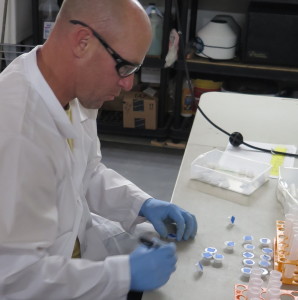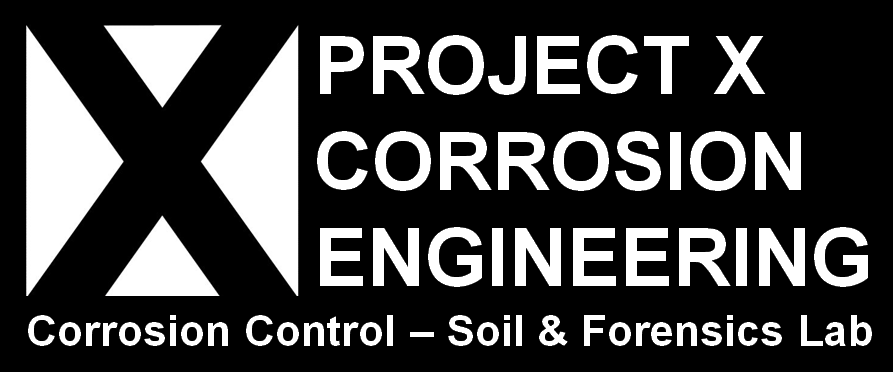Soil and Water Testing
Our soil and water lab testing analysis turn-around averages 3 days. Samples are tested for Minimum Resistivity, Sulfate, Chloride, Sulfide, Redox, pH, Ammonia, Nitrate, with report providing results, corrosion probability, corrosive bacteria probability, corrosion control recommendations along with expected corrosion rates of zinc, steel, and copper. The report is signed and stamped by a California Professional Engineer and NACE Corrosion Technologist. Presence of corrosive bacteria can be verified by our MIC test in which we take your water or soil, creates an extract and inject into testing vials which will cultivate the bacteria if present. Bacteria concentrations and type are then reported to you.

RECOMMENDED PACKAGE:
We highly recommend our Soil Corrosivity Report package when developing a site that will contain cement, steels, coppers, and aluminum alloys. This package consists of testing for:
- As Received Resistivity
- Saturated Resistivity
- pH
- Chlorides
- Sulfates
- Sulfides
- Nitrates
- Ammonia
- Oxidation/Reduction potentials
These tests provide the information necessary to confidently consul on the above materials’ compatibility with the soil in question.
SPECIALTY STUDIES:
Project X Corrosion Engineering offers a wide range of corrosion-related engineering services. Some include:
- Potable water corrosivity analysis including dissolved oxygen/dissolved CO2 for copper tubing blue water syndrome and other investigations.
- Thermal resistivity testing per ASTM D5334 for underground cables.
- Electrical resistivity testing per IEEE 81 for electrical grounding design.
- Chloride in concrete testing per AASHTO T-260.
- Corrosion rate determination using multiple techniques to provide corrosion allowances of buried materials.
- Soil electrical resistivity determined using Wenner four pin method (4-pins) per ASTM G57, electromagnetic conductivity survey, and laboratory soil box per ASTM G187 or CTM 643.
STANDARDS:
Our soil tests performed in accordance with NACE Recommend Standard Practice 0502-2002, External Corrosion Direct Assessment (ECDA) include the following for soil analysis for both in-house laboratory and field pipe investigations:
- Chloride ion content
- Moisture content
- pH
- Presence of corrosive bacteria (MIC)
- Redox potential
- Resistivity
- Sulfate ion content
- Total acidity
- Tests performed utilizing ASTM and Caltrans standards
- Proper handling of samples
- Proper documentation of test results
- Knowledgeable service technicians
- Results available 3 days after receipt of sample
- Shorter turn-around times available
- Competitive rates
TESTED MATERIALS:
Soil Corrosion/Corrosivity testing is available for non-hazardous materials, including:
- Water
- Concrete
- Steel
- Cast/Ductile Iron
- Mortar Coated Steel
- Copper Piping
